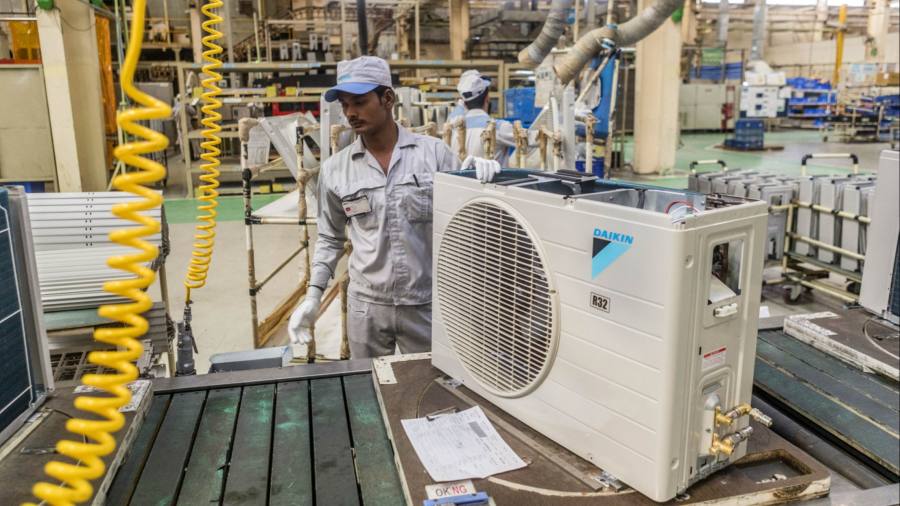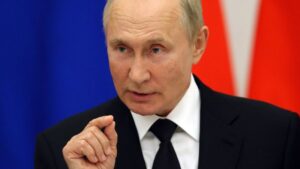
Japan’s Daikin Industries aims to make India its biggest manufacturing hub for exports, as the world’s largest air-conditioning company targets a near tripling of Made in India products sent abroad by 2025.
In an interview with the Financial Times, chief executive Masanori Togawa said European efforts to reduce dependence on Russian energy and tougher environmental regulations have presented the group with “the biggest opportunity” to expand sales of energy-efficient heating products such as heat pumps and has prompted the company to consider producing them in India.
“We are actively ramping up production of heat pumps, but if Europe enforces tighter regulations to require them at full scale by 2030, we still won’t be able to meet enough demand with our production in the region,” Togawa said at the company’s headquarters in Osaka.
“India would turn into a market as giant as China in the future, as the middle class and the wealthy are growing tremendously. In addition to concentrating production of [mass-market air-conditioning] products in India, we will also consider making heat pumps in the country that are exported abroad,” he said.
The company has one of the largest market shares in the European heat pump market along with Japan’s Panasonic and had already planned to quadruple its heat pump manufacturing capacity in Europe by 2025. To help reach the target, it will set up a dedicated plant in Poland and increase production at existing facilities in Germany, Belgium and the Czech Republic.
In India, Daikin is constructing a new plant which will begin operation in August, making room air conditioners and compressors, a key component. It is doubling down on a market where only 5 per cent of homes have air conditioning. The company will also aim to export Made in India air-con products to 100 markets in 2025, up from 30 in 2021.
Pursuing an aggressive acquisition strategy, the Osaka-based manufacturer has expanded rapidly outside its shrinking home market to become the world’s top manufacturer of air-conditioning equipment by sales. In 2006, it acquired Malaysian rival OYL for ¥232bn ($1.7bn) and further expanded in the US with the $3.7bn acquisition of Goodman Global in 2012.
With the rise in global energy prices boosting sales of its energy-efficient air conditioners in Europe, the US and Asia, the company has forecast a record operating profit for the second straight year, with profit expected to rise 18 per cent to ¥372bn in its year to March.
Even so, the Japanese group has also been hit by chip shortages and has had to adjust to supply chain disruptions following Covid-19 lockdowns in China. In March 2021, Daikin began producing air-filtering equipment also at a factory in Japan that was previously made only in China.
The company has begun designing its own customised semiconductors, in an attempt to reduce its reliance on multipurpose ones that are becoming difficult to obtain.
“Being dependent on one company or one region [to procure components and manufacture products] would be very difficult if an issue occurred there. During the pandemic, we have built a back-up system to procure and develop substitutes,” Togawa said.

